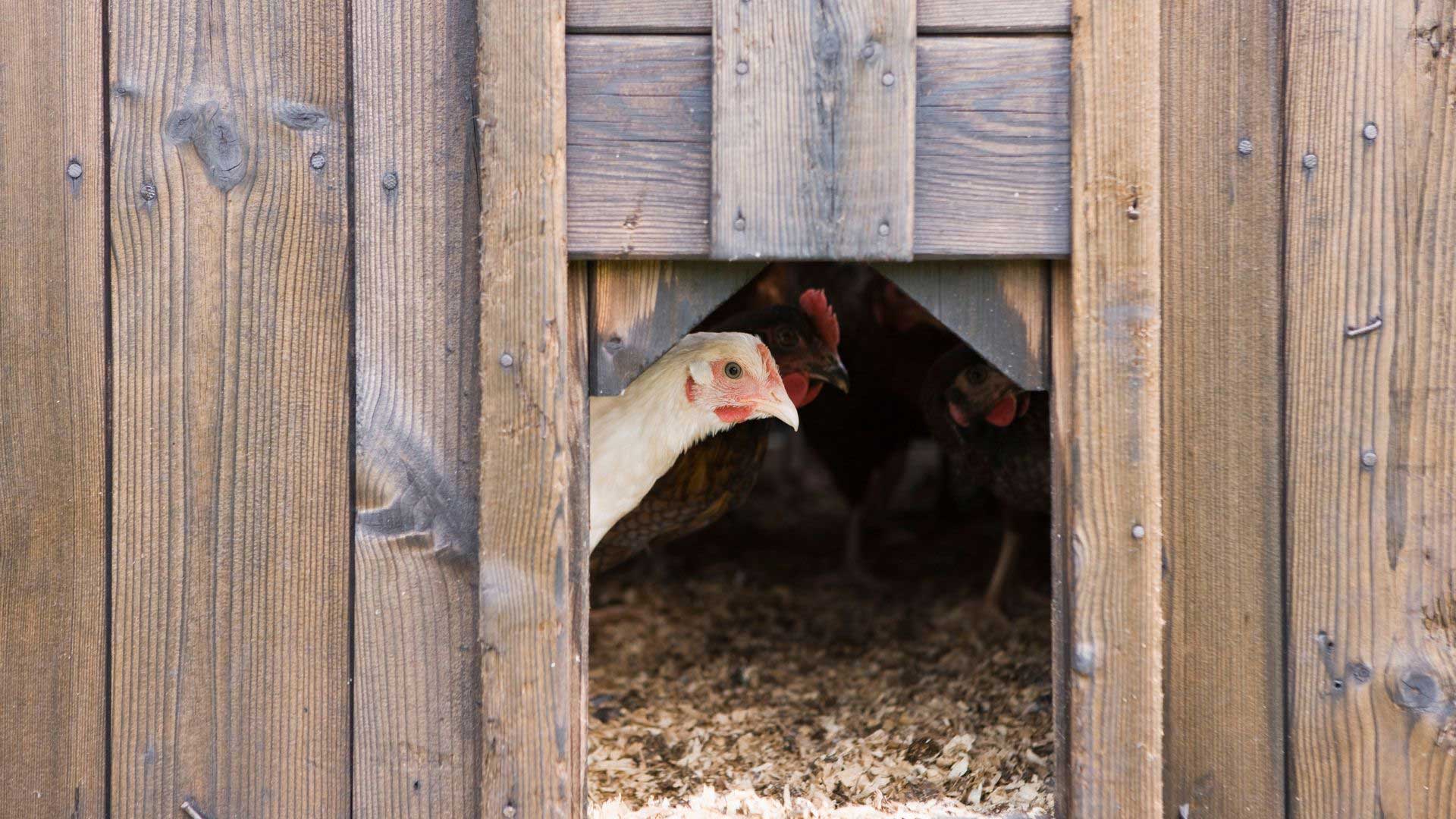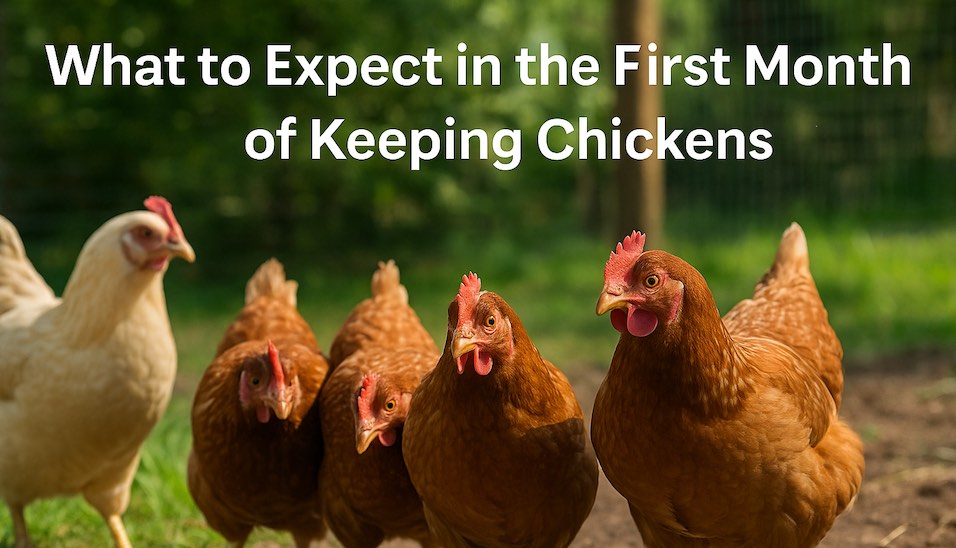6 Ways to Prevent Disease in a Chicken Coop
6 Ways to Prevent Disease in a Chicken Coop
Healthy chickens are happy chickens—and keeping them disease-free starts with prevention.
Diseases in chickens often spread through faeces, damp bedding, and poor coop conditions, but these issues are easy to manage with proper care. Maintain a clean coop, reduce environmental stress, and use simple health practices, and you can drastically lower the chances of illness in your flock.
Worried about how to keep chickens disease-free or prevent coop disease?
Focus on keeping your chooks stress-free, treating them for common parasites, and blocking pests like rodents and wild birds from bringing illnesses into the coop.
Follow these six proven methods to protect your flock, keep them thriving, and ensure your coop stays productive.
6 Ways How to Prevent Chicken from Getting Sick
- Keep the chicken coop clean
- Avoid environmental stresses
- Implement a health management program
- Avoid introducing disease and parasites into your chicken coop
- Isolate sick birds
- Stay consistent with prevention
1. Cleanliness in the Chicken Coop Is Key
Without question, keeping the chicken coop clean has to be number one in our Top 6 Ways to Prevent Disease in the Chicken Coop. Most parasites and diseases spread through faeces. Mites and lice lay eggs around the chicken coop as well as in the bedding. Therefore, the cleaner the pen is, the better.
How to Keep a Chicken Coop Clean:
- Provide roosts, so chickens are not sleeping on their droppings.
- Frequently remove droppings.
- Clean the pen and wash or disinfect regularly. If you have a choice, select a coop of an easily cleaned material like metal or plastic. Wood quickly absorbs urine and faeces bacteria, so metal or plastic is better.
- Replace nesting material fortnightly, or whenever it is soiled.
- Treat the pen and nesting area for mites and other parasites. Coopex Insecticide Powder does the job. Rotenone powders are another option. For a natural solution, we recommend VetRx Poultry Remedy diluted and sprayed over the area.
- Locate the pen in a sunny, well-drained position. Rotate pasture wherever possible.
- Never leave uneaten feed on the ground. Not only does it rot, potentially causing illness, but it is also the primary attractant for disease-carrying vermin.
We have written an extensive article on the Best Ways to Clean a Chicken Coop.
2. Reduce Environmental Stress
Illness in chickens is often brought on by stress. Stresses will also affect parasites and disease. Poor environmental conditions often increase illness. Something as simple as avoiding environmental stresses can make a massive difference to a chicken’s resistance to common illnesses.
How can your hens avoid environmental stresses:
- Never overcrowd your pen.
- Protect chickens from extreme weather.
- Ensure that birds have a warm place to roost. It should be protected from wind and rain, and provide somewhere cool to rest in hot weather.
- Take particular care of your chickens when they are suffering from stresses such as moulting, breeding, transport and changes in diet.
- Adding some nesting herbs in the nesting box or coop bedding can potentially reduce stress in your chooks.
- Use supplements to counteract the effect of stress:
- AviLYTE electrolyte solution may help chickens weather heat waves;
- 2 Pak Probiotics for pigeons, chickens and birds may prevent the impact of stressful situations like transportation;
- Seed oils and liquid vitamins provide much-needed extra calories and nutrients during breeding and moulting.
3. Implement a Health Management Program for Your Hens
A health management program may sound complicated, but preventing illness in the first place is far more effective, and more straightforward, than treating it after the fact.
- Inoculate chicks against coccidiosis.
Many chicks bought commercially will be vaccinated for this common disease, ask your supplier. Otherwise, medicated feed is widely available—be sure not to give the feed to laying hens.
- Deworm your chickens twice yearly, preferably in spring and autumn.
Treat chickens for mites and lice at least twice a year, in addition to treating the pen with an insecticide (see above).
Use David Grays Poultry Dust on chickens as an external treatment. Internal parasite controls are also available, such as ivermectin, Vetsense Fluverm and maldison.
See all poultry healthcare products in our store.
4. Avoid Introducing Disease and Parasites Into Your Chicken Coop
There are various sources of diseases and parasites that infect chickens:
- Rodents carry parasites and disease, which are spread primarily through faeces. Always ensure that food sources are out of reach of rats and mice. Dispose of any feed contaminated by droppings. To prevent vermin in the chicken coop, we recommend the use of a no-waste chicken feeder. Spilled feed is what typically attracts rats and mice to the chicken coop, and once they are there, they are challenging to remove.
- Wild birds are generally infected with worms and also carry many diseases that can be passed on to domestic fowl. Where possible, limit the access of wild birds to your chicken coop. You could use Dine-A-Chook quality bird netting to help keep wild birds out. It is particularly important to ensure that these unwanted visitors cannot access your feeder and waterer.
- While chickens naturally eat insects, slugs, snails, earthworms and other insects are frequently carriers for worm eggs. When they hatch, they infect your chickens. Never feed your chickens these pests and limit access if possible.
- New birds commonly introduce disease to the chicken coop. Even birds from a certified breeder may carry bacteria or harbour disease which may decimate your flock.
Also, ensure the chicken run is nice and dry without constant muddy puddles. Muddy puddles are a perfect place for bacteria and disease to spread to the flock. Read our article on how to prevent muddy puddles.
It is good practice to isolate new birds for a period of up to two weeks, watching them carefully for signs of illness, before introducing them to your flock. Should you prefer to be very cautious, use a “sacrificial” bird (one of your own hens penned with the new birds).
If both your chicken and the new ones are well at the end of a fortnight, they are fine to be introduced to your chicken coop; if not, be glad you didn’t just pop them in there!
5. Remove Sick Birds
Illness spreads rapidly amongst chickens.
It is essential to monitor your birds carefully and remove any bird showing signs of disease as quickly as possible. This helps to prevent the infection of others.
Removing sick chickens also gives them a better chance of recovery, and stops other birds from picking on them.
Once the bird has been isolated, ensure it is well-hydrated and warm. If it is not eating or drinking, use a spoon or dropper to give it water fortified with an electrolyte solution such as AviLYTE until it is recovered enough to drink on its own.
If you are treating a bird for a contagious illness, it is usually advisable to treat the whole flock. Ultimately, even if only one bird is showing signs of illness, chances are that the entire flock has been infected and it is only a matter of time until they too fall ill.
This is particularly the case with internal parasites such as worms.
6. Stay Consistent with Prevention
Disease prevention requires ongoing effort. Regular cleaning, health checks, and monitoring are essential. By sticking to these habits, you’ll keep your coop disease-free and your chickens happy and healthy.
Keep Your Flock Healthy and Happy
Preventing disease in your chicken coop isn’t complicated—it’s about consistency and care. Cleanliness, stress management, and proactive health practices like deworming and treating for mites are all you need to keep chickens disease-free.
By taking these steps, you’ll not only protect your flock from illness but also enjoy better egg production and healthier, happier chooks.
We hope these tips on how to prevent chicken diseases were helpful! If you have questions or need help choosing the right products for your coop, contact us today. We’re here to help you keep your flock thriving!
Happy chicken keeping!
Rachael at Dine-A-Chook Australia




